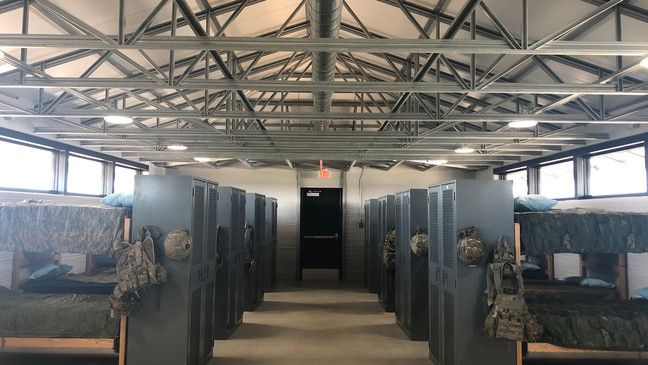Mexico Fortifies Acapulco with Massive Military Barracks Following Hurricane Devastation
In an aggressive response to the aftermath of Hurricane Otis, Mexico is taking a dramatic step to establish law and order in the hurricane-ravaged city of Acapulco. The federal government has unveiled ambitious plans to nearly triple the National Guard presence in the state of Guerrero, which will result in

In an aggressive response to the aftermath of Hurricane Otis, Mexico is taking a dramatic step to establish law and order in the hurricane-ravaged city of Acapulco. The federal government has unveiled ambitious plans to nearly triple the National Guard presence in the state of Guerrero, which will result in the largest deployment in any Mexican state to date.
Hurricane Otis, the strongest storm to strike Mexico's Pacific coast, left a trail of destruction in Acapulco, claiming lives and causing widespread property damage estimated in billions of dollars. In the chaos that followed, looting became rampant, underscoring the urgent need for enhanced security measures.
Defense Minister Luis Cresencio Sandoval, in a recent press briefing with President Andres Manuel Lopez Obrador, announced the intended increase of National Guard troops from a mere 360 to a staggering 9,860. Guerrero's overall contingent will witness a significant rise to 14,620 from the current 5,120 troops.
To accommodate this surge, Mexico plans to construct 38 new bases in Acapulco, supplementing the five existing ones. Each of these bases will be home to 250 soldiers, culminating in a permanent force of approximately 10,000 troops in the city.
The military build-up comes in the wake of Acapulco's long-standing battle with crime. Once a glitzy beach resort, Acapulco has, in recent years, been tarnished by violence, ranking among the world’s ten most violent cities due to drug cartel activities.
The decision to fortify Acapulco with troops rather than investing directly in the reconstruction of its tourism infrastructure has stirred debate. While some view the move as necessary to restore order, others criticize the government's approach, pointing to a perceived neglect of the economic rejuvenation needed to revive the city’s once-thriving hospitality sector.
President Lopez Obrador's administration has indicated that part of the hurricane reconstruction efforts will focus on erecting military barracks, which raises questions about the balance of priorities between immediate security concerns and long-term economic recovery.
Despite the pressing need for rebuilding, the president has shown reluctance to offer financial assistance directly to the hotel owners, instead proposing that the government would subsidize half the interest on reconstruction loans obtained from private banks.
The militarization of Acapulco’s reconstruction has become a controversial cornerstone of Lopez Obrador's security strategy, as it implies an overwhelming reliance on the armed forces while potentially overlooking the socio-economic fabric of the community that requires equal attention for a sustainable recovery.




